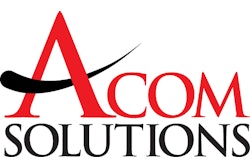White paper from Venable attorneys discusses RFID deployment and regulatory challenges
Washington — February 10, 2005 — Radio frequency identification (RFID) technology has begun to capture the attention of a spectrum of businesses — from pharmaceutical manufacturers to retailers — for its potential to save billions in tracking and inventory costs. It has even fired up the imagination of the U.S. Department of Homeland Security, which plans to test the use of the electronic tags this spring at border crossings.
But it is far from smooth sailing for RFID. Venable regulatory attorneys Ronald Quirk, Jr. and Stacia Borrello have written a white paper, "RFID: Rapid Deployment and Regulatory Challenges," identifying serious regulatory issues that, if ignored, could impede implementation of even the most carefully designed RFID systems.
RFID has had a well-publicized impact on retailers and supply-chain management, such as the mandates being implemented by leading retailers Wal-Mart and Target. According to a study by the Yankee Group, the improved data synchronization and tracking ability of RFID could cut between $2 billion and $4 billion in costs for the retail industry. Use of the technology has also caught on in the U.S. Department of Defense, which is requiring the use of RFID in various supplier contracts. And, the Food and Drug Administration (FDA) has issued a report recommending the use of RFID to combat counterfeit drugs. Major pharmaceutical manufacturers, including Purdue Pharma, Pfizer and GlaxoSmithKline, have announced plans to incorporate RFID in their drug packaging.
"RFID presents a transformative opportunity for businesses, but RFID manufacturers and operators must be mindful of some regulatory pitfalls and contract issues," said Quirk, who previously served as a senior attorney/advisor in the Federal Communication Commission's (FCC) Wireless Telecommunications Bureau. "These systems require FCC approval and can lead to a host of privacy concerns."
Borrello, an attorney who specializes in FDA matters, added, "Navigating RFID regulation will become increasingly important for a wide range of industries. As the pharmaceutical industry begins taking bigger steps to create a 'pedigree' for their products, which the FDA recently recommended, they are going to have to pay close attention to the legal complications of RFID technology."
Some of the industries that will see the biggest benefit from RFID include retailers, manufacturers, government, healthcare/pharmaceuticals, transport/shipping, security, and construction, the two said.
According to the report, industries must keep in mind the following FCC regulatory concerns:
* With limited exceptions, RFID devices require testing and FCC approval prior to marketing and/or operation.
* RFID devices must be operated in compliance with FCC regulations; non-compliant RFID systems could face regulatory action by the FCC including system shut down, and the party responsible for compliance could face substantial monetary fines.
* RFID operators must ensure that vendor contracts protect them in the event of FCC rule violations and provide indemnification from third-party lawsuits.
Additionally, industries should familiarize themselves with privacy legislation:
* Six states and the federal government introduced RFID privacy bills in 2004.
* RFID privacy bills affect many areas of consumer privacy.
* As RFID mandates are implemented on a wide-scale basis, more consumer privacy laws will be introduced and passed.
Venable's Communications Group has experience representing clients with respect to RFID regulatory, transactional, liability and technology issues. The Group also represents companies in a wide range of other leading-edge communications technologies.
Venable said its Food and Drug Group helps manufacturers, marketers and other clients that are facing the FDA's extensive regulations surrounding product development, FDA approval, production, and sales and marketing. Venable's clients include manufacturers and distributors of pharmaceuticals, bulk chemicals, vaccines, biologics, medical devices, cosmetics, and food and dietary supplements.











